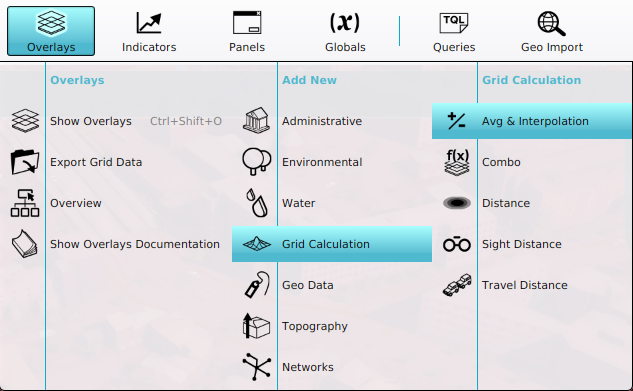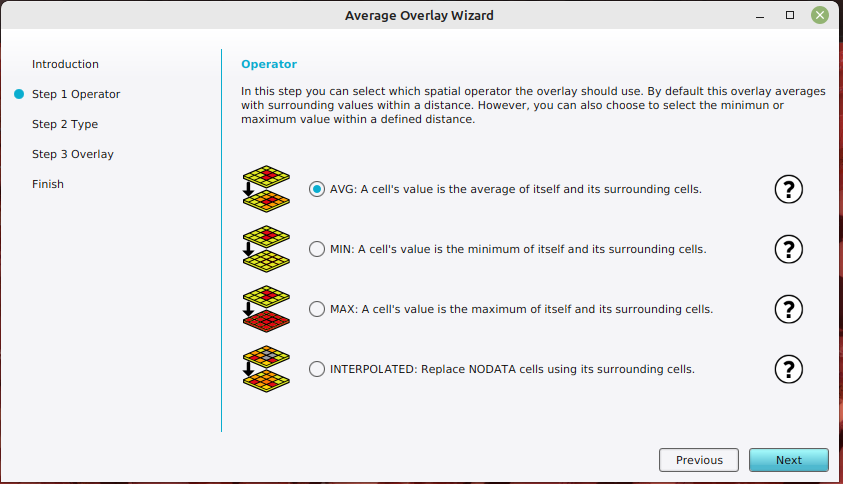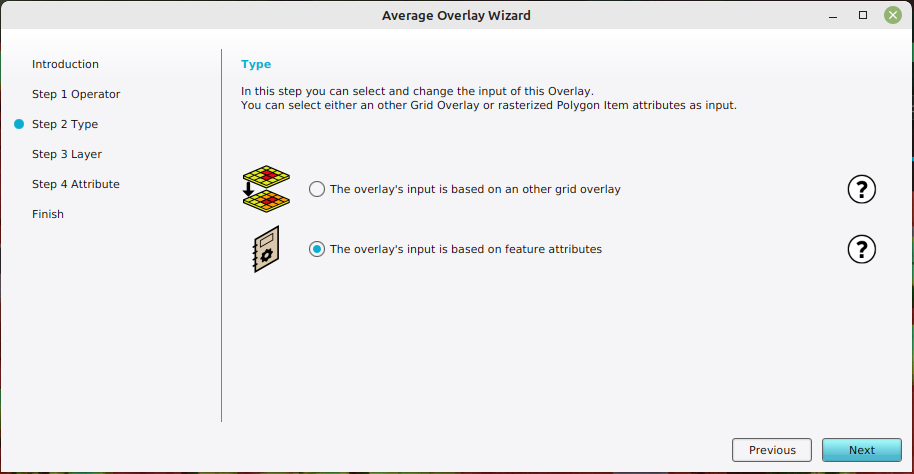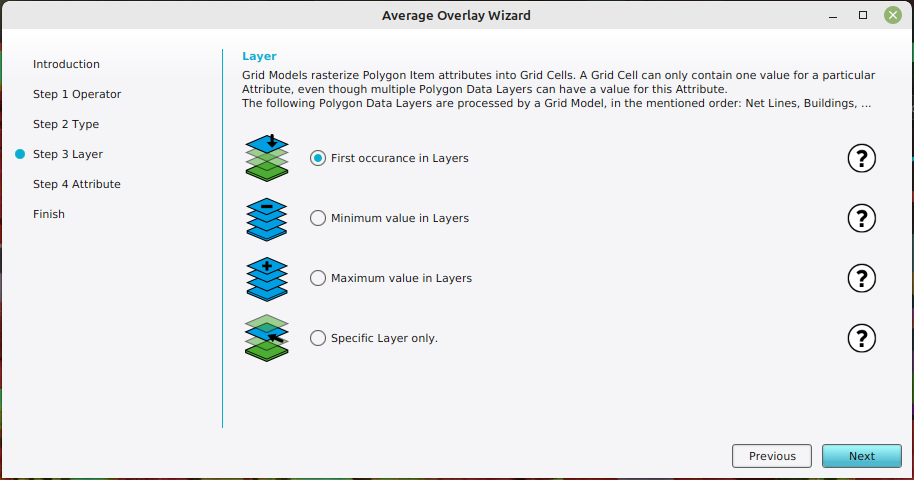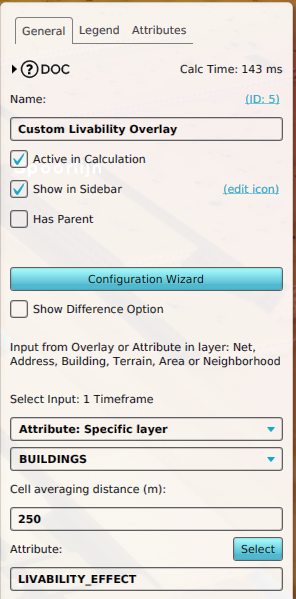How to create an Average Overlay based on feature attributes: Difference between revisions
Jump to navigation
Jump to search
(Created page with "{{Editor location|Overlays}} {{Editor steps|title=create an Average Overlay based on feature attributes |Select Current Situation in the ribbon bar of the editor. |Hover over Overlays, and under ''Grid Calculation'', select ''Avg & Interpolation''. |With the Overlay selected, open the ''Configuration Wizard'' by clicking on the button in the detail panel. |Once the wizard is ready, select next. |In the operator step, select the option name...") |
No edit summary |
||
| Line 30: | Line 30: | ||
|seealso= | |seealso= | ||
*[[Average Overlay]] | *[[Average Overlay]] | ||
|howtos= | |||
*[[How to create an Average Overlay based on another Grid Overlay]]. | |||
*[[How to fill NO_DATA values in a grid overlay by interpolation using and Average Overlay]]. | |||
*[[How to configure an Average Overlay to gain insight into grid cell values]]. | |||
}} | }} | ||
Revision as of 16:17, 10 January 2024
How to create an Average Overlay based on feature attributes:
- Select Current Situation in the ribbon bar of the editor.
- Hover over Overlays, and under Grid Calculation, select Avg & Interpolation.
- With the Overlay selected, open the Configuration Wizard by clicking on the button in the detail panel.
- Once the wizard is ready, select next.
- In the operator step, select the option named AVG.
- In the type step, select the option named The overlay's input is based on feature attributes.
- In the layer step, select the option that is best applicable: when the feature attribute is in multiple layers, select the "First occurrence", "Minimum value" or "Maximum value" option. If the attribute should only be obtained from a specific layer, select the Specific Layer only option. In that case you also have to select a particular layer, such as Buildings.
- In the attribute step, click on the select button to select an attribute that should be rasterized.
- Optionally adjust the default value in case no features are present at a particular location.
- Click next and close the wizard by clicking on the finish button.
- Adjust the averaging distance to accordingly by selecting the Cell averaging distance (m) field.
2. Add a new Average Overlay.
Notes
- The layer sequence of first occurrence is defined in Rasterization model.
- In the attribute step, the amount of timeframes can be increated when the attribute is represented by an array of values.
How-to's
- How to create an Average Overlay based on another Grid Overlay.
- How to fill NO_DATA values in a grid overlay by interpolation using and Average Overlay.
- How to configure an Average Overlay to gain insight into grid cell values.
